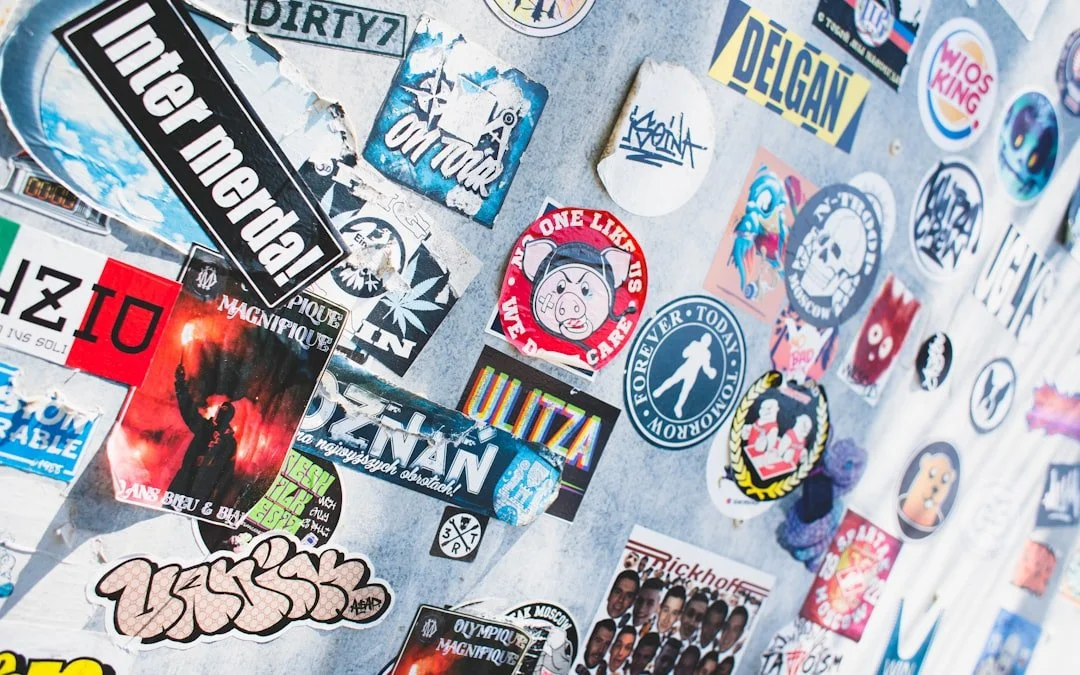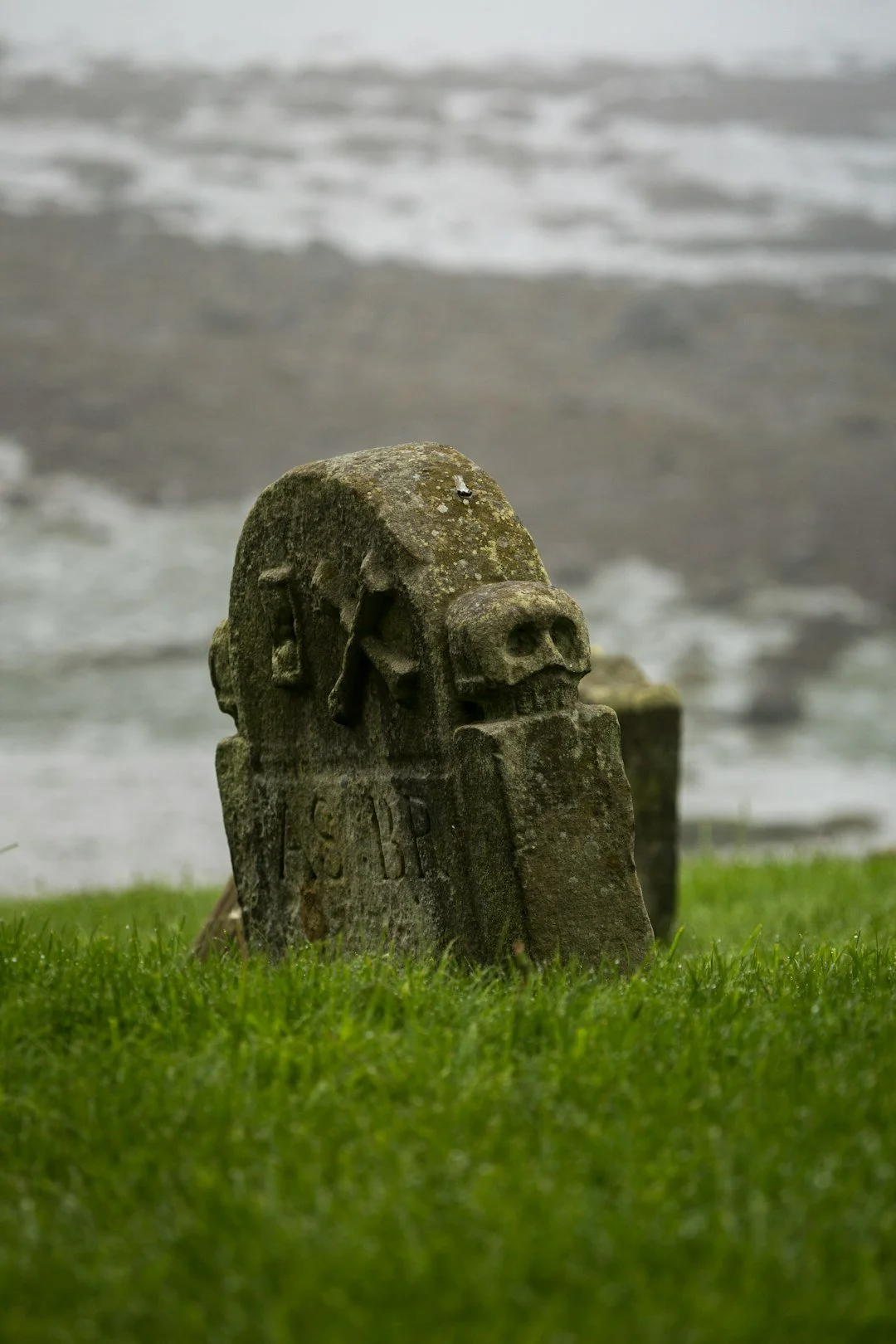Mortality, Meaning, and Making It Count
What if your legacy was a bumper sticker?
On my way to a meeting in Greenville, I found myself behind a car covered in obscene, right-wing bumper stickers. It’s their First Amendment right, of course. They can plaster their vehicle with whatever hateful messages they choose. But as I glanced at the cluttered display, I couldn’t help but think: Is this really how you want to be remembered, friend?
Is it really?
He (Wallace Price) never thought about death until he died.
TJ Klune, Under the Whispering Door
Memento Mori (and Memento Tributum?)
Death and taxes—the two constants in our increasingly inconsistent existence. Memento mori. (I suppose Memento Tributum never quite caught on, but if you’re American, it should hit home by April 15th.)
If I don’t want to be remembered for my bumper stickers, what do I want to be remembered for? My work? My family? My skills? My character? And if I’m not remembered at all—because, let’s face it, most of us won’t be—what, then, truly defines me?
Never forget where you come from, but don’t allow it to define you.
TJ Klune, Under the Whispering Door
A Story That Made Me Belly-Laugh (and Nearly Ugly-Cry) in Publix
This week, I finished listening to Under the Whispering Door by TJ Klune. It’s an absolutely charming and beautiful story about Wallace Price, a cutthroat lawyer who unexpectedly dies—only to regain consciousness at his own funeral. Wallace had spent his life being unkind, and now that he was dead, he had to learn how to live.
I had to stop listening to this story in public. One minute I was belly-laughing in the middle of a Publix aisle, and the next, I was trying hard not to ugly-cry, and found it very difficult to find the peanut butter. While probably not for everyone, it’s a poignant, thought-provoking, and undeniably beautiful story.
Hindsight is a powerful thing, Wallace. We don’t always see what’s right in front of us, much less appreciate it. It’s not until we look back that we find what we should have known all along.
TJ Klune, Under the Whispering Door
The Wisdom of Gandalf (and Why We Must Decide)
Remembering our own mortality has a way of setting the mind and body free. Wisdom literature from across cultures tells us to “number our days” and remember we are dust—and to dust we shall return.
“I wish it need not have happened in my time,” said Frodo. “So do I,” said Gandalf, “and so do all who live to see such times. But that is not for them to decide. All we have to decide is what to do with the time that is given us.”
J.R.R. Tolkien, The Fellowship of the Ring
This week, considering Wallace Price’s story, I’ve been thinking about three things:
1. You Don’t Have Time to Do Everything—And That’s Freedom
At the end of life, many people lament the things they never accomplished or the places they never saw. But that perspective is completely backward.
We should find joy in what we get to see and experience. That we could have chosen another path but didn’t is precisely what makes our choices meaningful.
It’s precisely the fact that I could have chosen a different and perhaps equally valuable way to spend this afternoon that gives meaning on the choice I made. And the same applies, of course, to an entire lifetime.
Oliver Burkeman, Four Thousand Weeks: Time Management for Mortals
2. What Do I Really Want to Be Known For?
Certainly not for being a [fill in your political party here]. I’d rather be remembered for virtues like courage, compassion, justice, and empathy.
So I believe in having a clear set of personal values—something like a compass for when you’re traveling at night. Right now, it feels like we are traveling at night. And without a compass, we’ll just drift toward whatever is easiest instead of making intentional, values-driven decisions.
(If you want help with this, Growability® has some fantastic tools for developing value statements—both personal and organizational.)
3. How Am I Using My Time Right Now?
A leadership coach (and good friends of mine) sends a monthly email to his clients with thought-provoking, mind-stretching articles. This month, my email had one question that hit me hard:
If someone observed my actions for a week, what would they say my priorities are?
I will not lie. If someone watched me closely on certain days, they might conclude that my priorities included keeping up with breaking news and gathering as many online opinions as possible—none of which I could act on in any meaningful way. Actions show exactly what your priorities really are.
Knowledge without action is one of the most frustrating experiences in human existence.
“It’s never enough, is it? Time. We always think we have so much of it, but when it really counts, we don’t have enough at all.”
TJ Klune, Under the Whispering Door
Stewardship of Time (And What My Dad Taught Me About Money)
What will we do with the time—the very, very short time—we’ve been given?
The wrong response is to do more.
I believe we should do better.
That was, in a sense, the lesson Wallace Price learned. And it’s never too late.
I remember earning a few dollars as a child and feeling an incredible sense of freedom. I could spend those dollars any way I wanted! I was in a dime store, holding my money, ready to buy some trinket. My dad stopped me. He told me we weren’t buying that right now.
And then I made a foolish error.
“It’s my money,” I said. “I can do what I want with it.”
My dad looked at me and simply said, “No, it is not your money and you cannot do whatever you want with it.”
That day, I got a simple lesson in stewardship. It’s never my money. It never has been. And I absolutely cannot spend it however I want. The same lesson applies to time.
Time, like every other resource, is a gift.
And while, yes, we can technically do whatever we want with it—because we have free will—we are fools to use it thoughtlessly. Genuine power comes when you realize power itself isn’t all that important—not in the long term. When we use our gifts to give more gifts, it makes everything better for everyone.
Life is messy and terrible and wonderful, all at the same time.
What small action can you take right now to align your time with the legacy you want to leave?
Oh—and you’re doing better than you think.


